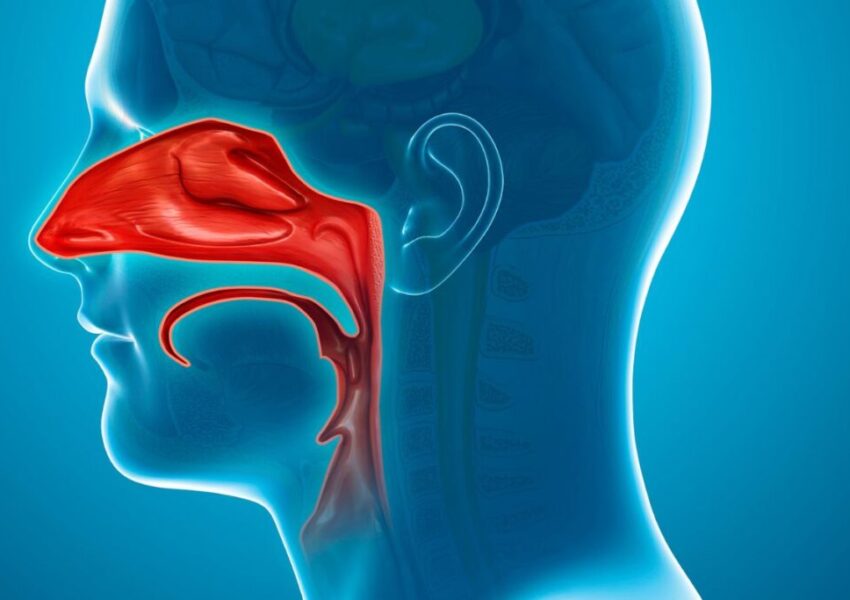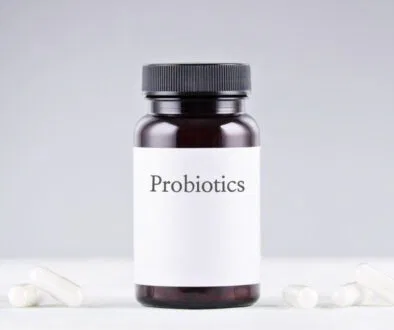Exercise-Induced Rhinitis: Causes, Treatment, And Prevention

Published February 28, 2024
If your workout leaves you breathless and triggers a runny nose and congestion, you might be experiencing exercise-induced rhinitis (EIR). The condition, often overlooked, significantly affects fitness enthusiasts worldwide.
In this article, we’ll explore what exercise-induced rhinitis is all about. Let’s uncover the causes and discuss high-risk groups, treatment, and preventive measures. It’s time to shed light on this often-overlooked yet impactful aspect of exercising.
Understanding Exercise-Induced Rhinitis
Why does my nose run when I exercise? Exercise-induced rhinitis is a type of non-allergic rhinitis. The defining symptoms include nasal congestion and a runny nose that occur during or after physical activities. Unlike allergic rhinitis, which allergens trigger, EIR is due to exercise.
Sadly, the condition can impact individuals otherwise unaffected by allergies. It highlights the unique nature of the condition.

Causes Of Exercise-Induced Rhinitis
While the exact cause of EIR remains unclear, several factors are thought to play a role in its development.
- Increased blood flow. Exercise boosts blood flow to body parts, including the nose. This can potentially trigger rhinitis.
- Cold air. Exposure to cold air while exercising can trigger the condition by activating nasal nerves, causing a runny nose. For example, if you end up sneezing after running outside during cold weather, it’s a clear sign of the condition.
- Heightened allergen exposure. Individuals exercising outdoors are more vulnerable to allergens, which can provoke the symptoms.
- Underlying nasal allergies. Athletes with nasal allergies are prone to this type of rhinitis. This happens no matter if they work out indoors or outdoors.
If you often have rhinitis symptoms before or after exercise, you should seek advice from a healthcare professional. They can give you an accurate diagnosis and treatment.
What Are The Symptoms?
Exercise-induced rhinitis manifests as nasal symptoms during or after exercise. Here are the key symptoms:
- Runny nose. Excessive mucus production in the nose is a prevalent symptom
- Nasal congestion. A stuffy or blocked nose can impede nasal breathing
- Sneezing. Frequent sneezing during or after exercise
- Itchy or watery eyes. A person with EIR might encounter eye-related symptoms such as itchiness or excessive tearing
- Postnasal drip. If you have postnasal drip, it’s a sensation of mucus trickling from the nose into the throat
- Nasal itching. An itchy nose, though less common, could indicate the condition.

Who Is At Risk?
Some individuals may have a higher susceptibility to exercise-induced rhinitis. Here’s a breakdown of those at elevated risk:
- Outdoor enthusiasts. Those who work outdoors, especially in colder climates or areas with high pollen levels, are more likely to develop the condition. This is due to increased exposure to allergens and environmental triggers.
- Individuals with allergies. People with existing allergies, especially respiratory ones like hay fever, are more likely to get EIR.
- Asthmatic individuals. People with asthma are more prone to the condition as their airways are already susceptible to inflammation.
- Individuals who engage in high-intensity exercise. People who do intense workouts may be more vulnerable. This is because these activities can increase blood flow to the nose.
- Swimmers. Swimming increases the risk for EIR due to exposure to chlorine and other pool chemicals that can irritate the nasal passages.
- History of rhinitis. If you have a history of rhinitis, your chances of developing EIR may be higher.
Management Of Exercise-Induced Rhinitis
The treatment for exercise-induced rhinitis focuses on reducing symptoms. It also aims to improve comfort during and after activity. Here are the common treatment options:
- Corticosteroids. A corticosteroid nasal spray reduces nasal inflammation, easing congestion and symptoms.
- Nasal rinse. Rinsing the nasal passages with saline using a neti pot or similar device may help. It clears out allergens and soothes the nasal passages.
- Antihistamines and decongestants. Both medications manage symptoms such as runny nose, sneezing, and nasal congestion. Antihistamines block histamine effects released during allergic reactions. As for decongestants, they work by reducing the swelling in the nasal passages.

Preventive Measures
Prevention requires managing the triggers and taking measures to reduce symptoms. Here are some practical prevention tips:
- Avoid triggers. Steer clear of environments that typically trigger the symptoms, such as cold weather or high-pollen areas.
- Warm-up exercises. Gradually warming up before intense exercise may lessen the severity of the symptoms.
- Stay hydrated. One of the home remedies for exercise-induced rhinitis is drinking water. Keep the body adequately hydrated by consuming fluids before, during, and after exercise to help thin nasal mucus.
- Wear a mask or scarf. Covering your nose and mouth can warm inhaled air during cold weather, potentially reducing the symptoms.
- Proper ventilation. Exercise in well-ventilated, dust-free indoor spaces to avoid potential irritants.
- Take probiotic supplements. Consider taking probiotic supplements as they could potentially alleviate common symptoms of EIR like runny nose and nasal congestion.

Conquer Exercise-Induced Rhinitis Today
Exercise-induced rhinitis may be a challenge. But, with awareness and proactive management, it doesn’t have to hinder your fitness progress. Focus on your health. If you have ongoing symptoms during or after exercise, seek guidance from a healthcare provider. Take control of your wellness journey. Move confidently toward a healthier, symptom-free future.
Benefit From The Latest Advancements In Probiotic Science With Bionaze
Bionaze is a proprietary blend of probiotics proven to promote ear, nose, and throat health, improve digestion, and support your immune system. The active ingredients BLIS K12, and BL-04 are considered among the best probiotics according to science.
Get 25% Off Your First Order when you use BIO25 at checkout!

This Content Has Been Reviewed For Factual Accuracy
This content has undergone thorough fact-checking by our team of internal experts. Learn more about the meticulous editorial standard for our website here.
ADVERTISEMENT

About The Author
Hi, I’m Corinne Grace, a proud nursing graduate from Riverside College with a flair for writing. I specialize in health and wellness topics, using my educational background to weave informative and attention-grabbing articles that appeal to a wide variety of readers. Committed to excellence in writing, I’m always refining my skills to stay in sync with the fast-evolving world of digital media. Whether you’re seeking to understand complex health concepts or looking for relatable advice, I’m here to deliver content that’s accurate and enjoyable to read.




